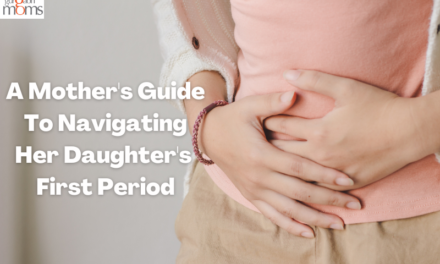In this article you will find some answers as to why teenagers behave the way they do and some ideas that might help in your journey with them. Teenagers go though cognitive, biological, social and emotional changes through the teenage years. All these changes lead them to develop their self identity and a new way of relating with parents, family members, friends, and the world at large. This is when the stage is set for their launch into the big, wide world full of possibilities and complexities they need to learn to deal with.
When you think of your little baby who has become a teenager now, what do you notice? Has he/she become more independent, opinionated, sometimes disrespectful, moody, preoccupied with physical appearance, and so on? Most importantly, you would have noticed that your relationship has undergone a change – this child is no longer as malleable, perhaps doesn’t idolize you the way he/she did as a child, or may appear too independent to need hugs, kisses, and reassurances. Where does that leave you? What is your role now? Is it just you, your child, your relationship, that feels like a rollercoaster ride (without the adrenaline high)?
Well, almost all parents go through this rollercoaster ride, with different levels of intensity. It sometimes helps to remind oneself as a parent that this is a time for changes and transformation. These are the years through which your baby will grow and transform himself/herself into a young adult. So, try to be patient and hang in there with your child.
Impact of Cognitive Changes
Research informs us that the human brain keeps growing and maturing well into the twenties. Hence, the ability to plan, delay gratification, consider consequences, and make informed and sound decisions will possibly not fully develop until he/she has finished their education and landed their first job, or even a bit later! Hence, often teenagers may procrastinate and prioritize based on immediate gratification: The movie seems more important than the upcoming test! This means that you have to help them prioritize: Polite reminders and firm consequences are still called for. At the same time, cognitively, teenagers are able to critique and criticize, if they spot discrepancies in what you say and what you do. They are, therefore, able to challenge and debate, and so you can have endless discussions or arguments. The great thing is that it also makes teenagers idealists, and they can put in their whole hearted passion and energy into things if guided or provided the right channels. The downside is that during this time conflict between parents and children usually occurs when parents expect teenagers to take on more responsibility, whether in terms of managing their time better or helping out with household chores, but are unable or unwilling to allow the teenager to participate in decision making. Teenagers do better when they feel they have a voice in their family and their voice is heard and considered. Though you don’t always have to give in or agree to their opinions. Children still depend on your better developed cognitive ability to make sound decisions! The art lies in making it a collaborative decision rather than a unilateral one.
Teenagers usually subscribe to the “invincibility myth”, which means they are not worried about mortality. Hence, they are comfortable taking risks, whether in the form of riding bikes really fast or experimenting with illegal drugs or alcohol. However, this behaviour can also be channelled and different outlets provided, whether through sports or by encouraging them to take on ventures/projects that challenge and excite them.
Impact of Biological Changes
Teenagers also go through major hormonal changes and develop physically during these years. These changes affect them on a few different levels. Development of secondary sexual characteristics (facial hair, breast development, etc) and change in body shape can be both a source of pride and a source of discomfort. With a change in physical shape children also undergo a change in their perception of their own self. Children begin to get preoccupied with their physical self. Some children also start dieting and/or exercising and are greatly influenced by current fashion trends. However, underlying issues, dormant emotional problems or emotional problems that occur during these years can end up with some children developing depression and body image or related disorders, which include anorexia, bulimia and self harm behaviours, such as cutting. Media also plays an important part in shaping views at this time and peers can reinforce unrealistic images. Parents have a major part to play in countering these unrealistic images and promoting a more healthy and balanced view on beauty and physical attractiveness. Teenage years are also the time when children begin to develop their sexual identity and preferences. They go through infatuations and attractions, which is a very normal part of growing up. While a lot of these relationships are quite harmless parents may need to set some clear boundaries and keep their eyes open to prevent children from getting into abusive or exploitative situations.
Impact of Social/Relational Changes
Teenage years are also the years when children begin to engage more and more with the outer world. Peer relationships, i.e., friendships, gain immense importance and influence. This is an essential part of growing up as it helps children make the inevitable transition into the adult world. While still relying on the security and comfort of immediate family, children begin exploring and discovering their independent selves in the context of their friendships. This is often expressed in the form of teenagers forming their own opinions, preferences and most importantly becoming private and not sharing all thoughts, emotions and experiences with parents. While this is an uncomfortable experience for parents, it is important to not take this as a sign of rejection. It is also important to give teenagers their privacy and space, both physically and psychologically. An important fact that remains is that children always need and thrive on the unconditional love and acceptance that only parents can provide. They still need encouragement and support. This means that while your teenaged son or daughter might not look like they need any hugs from you and may even look embarrassed, they still need you to express your affection. Believe it or not, they still thrive on that hug from you!
The most important thing to keep in mind is that relationships do not drastically change during teenage years. If a child has shared an overall positive, close relationship with his or her parents before teenage years, that relationship is likely to remain strong and continue throughout the teenage years. However, if there have been problems in the parent-child relationship before a child enters teenage years, the problems are likely to get aggravated. Also, research shows that while many children experiment, what prevents children from engaging in behaviours to a level that is destructive, such as, premature/promiscuous sex and abuse of drugs or alcohol, is whether the child shares a close relationship with parents, or not. Closer family ties have a strong influence on children, and teenagers who share a close relationship with their parents are more strongly influenced by their parents’ values and moral codes. In addition, parents continued involvement in the child’s day to day life with some degree of monitoring and supervision helps in keeping the negative influences away. On the other hand, research also shows that poor relationship with parents results in teenagers relying more on friends. In the absence of appropriate parental guidance or due to the teenager’s inability to accept such guidance, these teenagers often fall prey to friends who exert negative influences. The teenager’s engagement in negative behaviours then further strains the parent-teenager relationship, driving the teenager further away from parents towards the deviant friends. Hence, both parents and teenagers get stuck in a negative, destructive cycle.
Another important research finding is that children who have never associated with a deviant peer group, that is, other children who get into trouble, are not likely to associate with such children even in their teenage years. On the other hand, if a child has been getting in trouble or associating with the “wrong kind of crowd” before entering his/her teens, he/she is likely to continue with such behaviour and it might get worse during the teen years. Just like adults teenagers also associate with others who share their values, beliefs, and interests. Research also shows that children who are involved in various activities, whether voluntary activities, hobbies and/or sports have less time, inclination, and opportunity to get attracted to a negative crowd.
Hence, while transformations do occur, primary relationships and behaviour patterns do not undergo drastic changes and largely remain the same even through teenage years. To sum it up, a rough guide to rearing a teenager is the age old saying – “when your child becomes as tall/big as you, start treating him/her as an adult”. Respecting your child’s emerging individuality and independence, handing over some responsibility to him/her in manageable amounts, and involving him/her in decision making will most likely go a long way in making your relationship with your child richer and stronger.
The author of this article, Dr. Vandita Dubey, is a US trained and licensed psychologist who practices as a Clinical Psychologist and Psychotherapist/Counsellor in Gurgaon. She works with children, teenagers, adults, and couples and provides consultation for various emotional and behavioural issues. She can be contacted at 09958715551 or visit www.enricheducation.com for more information.





Enjoyed this thought-provoking read. I'm a teenager's Mom and find that I need to regularly read balanced viewpoints on parenting to moderate my expectations as also do a decent job of bringing up my child 🙂